This roundtable conference brought together experts in the fields of payments, renewable energy, the internet, and mobile travel to explore the challenges and opportunities of DePIN technology.
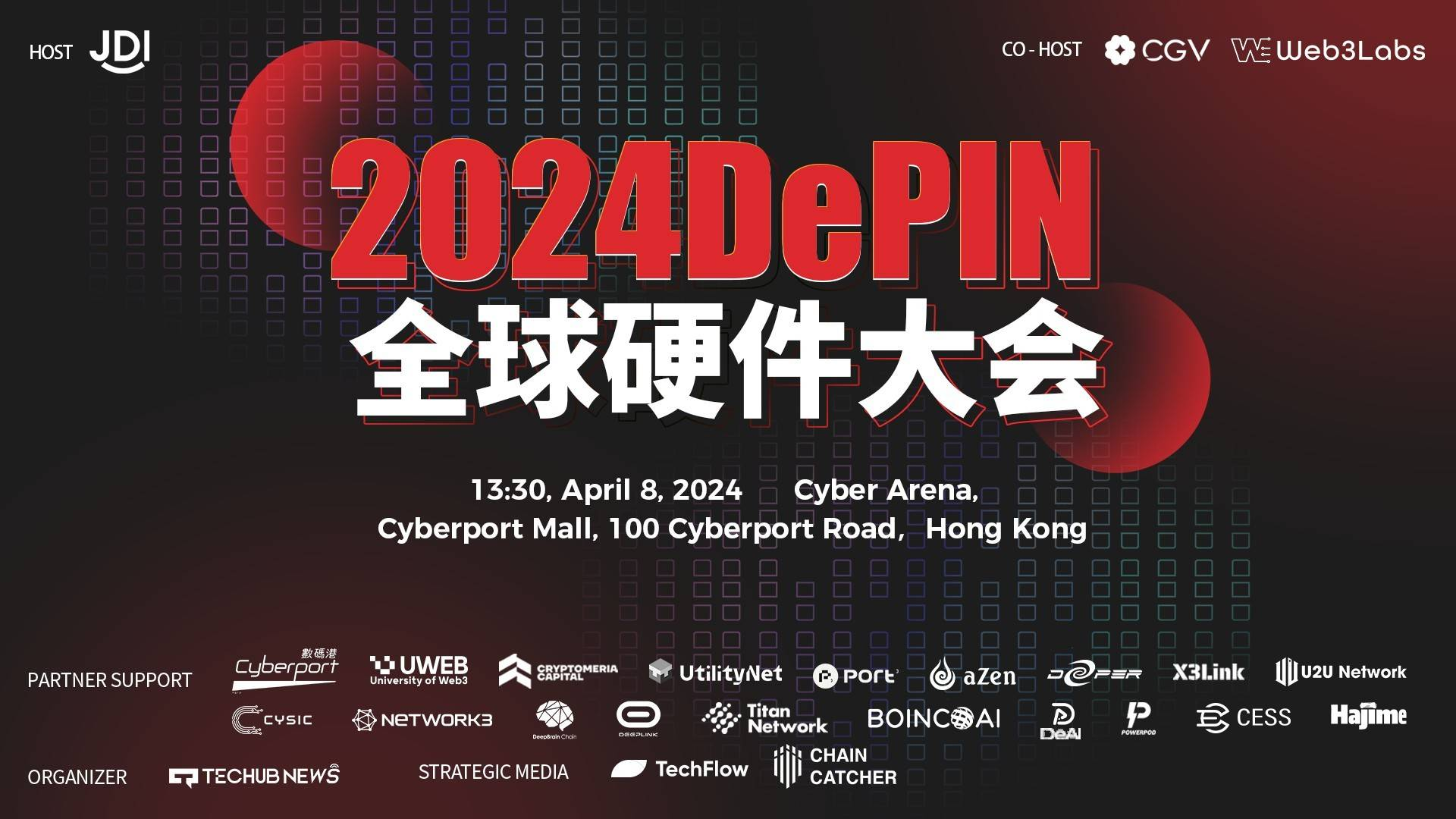
As the applause for the final speech gradually faded on April 8th, the 2024 DePIN Global Hardware Conference came to a successful conclusion on the magnificent stage of the Hong Kong Cyberport. This technology event, organized by Techub News and hosted by JDI Global, brought together the collaborative efforts of CGV and Web3Labs, as well as the strong support of Cyberport, UWEB, CRYPTOMERIA CAPITAL, UtilityNet, Port3 Network, Azen, Deeper, X3Link, U2U Network, CYSIC, Network3, DeepBrain Chain, DeepLInk, Titan Network, BOINC AI, DeAI, PowerPod, and CESS, attracting global attention and interest. Through in-depth exchanges and exciting presentations, the conference not only outlined a hopeful blueprint for the global hardware industry but also conveyed the power and potential of hardware innovation to the world. At this moment, we stand at a new starting point, full of confidence and eagerly anticipating a more brilliant future for the global hardware industry.
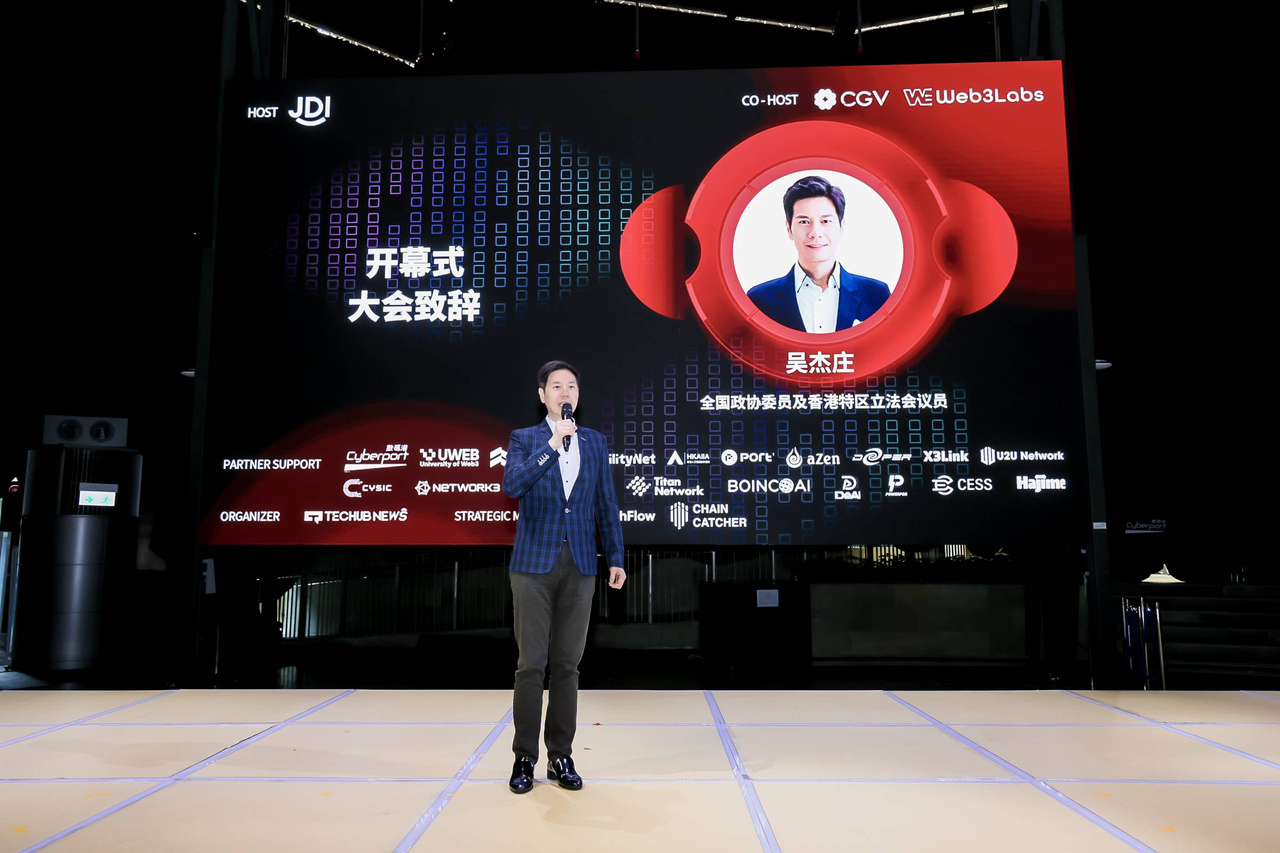
At the beginning of the conference, Hong Kong Legislative Council member Wu Jiezhuang delivered a speech. He emphasized Hong Kong's unique advantages in developing the Deep Physical Infrastructure Network (DePIN). As a huge economic entity and a "one country, two systems" city with an effective common law system, Hong Kong not only possesses enormous market potential but also enjoys unparalleled advantages in financial innovation and geographical location. Using last year's Beijing football match as an example, Councilor Wu vividly demonstrated the convenience brought by the combination of blockchain technology and physical infrastructure, highlighting the important role of DePIN in breaking through physical space limitations and driving technological development.
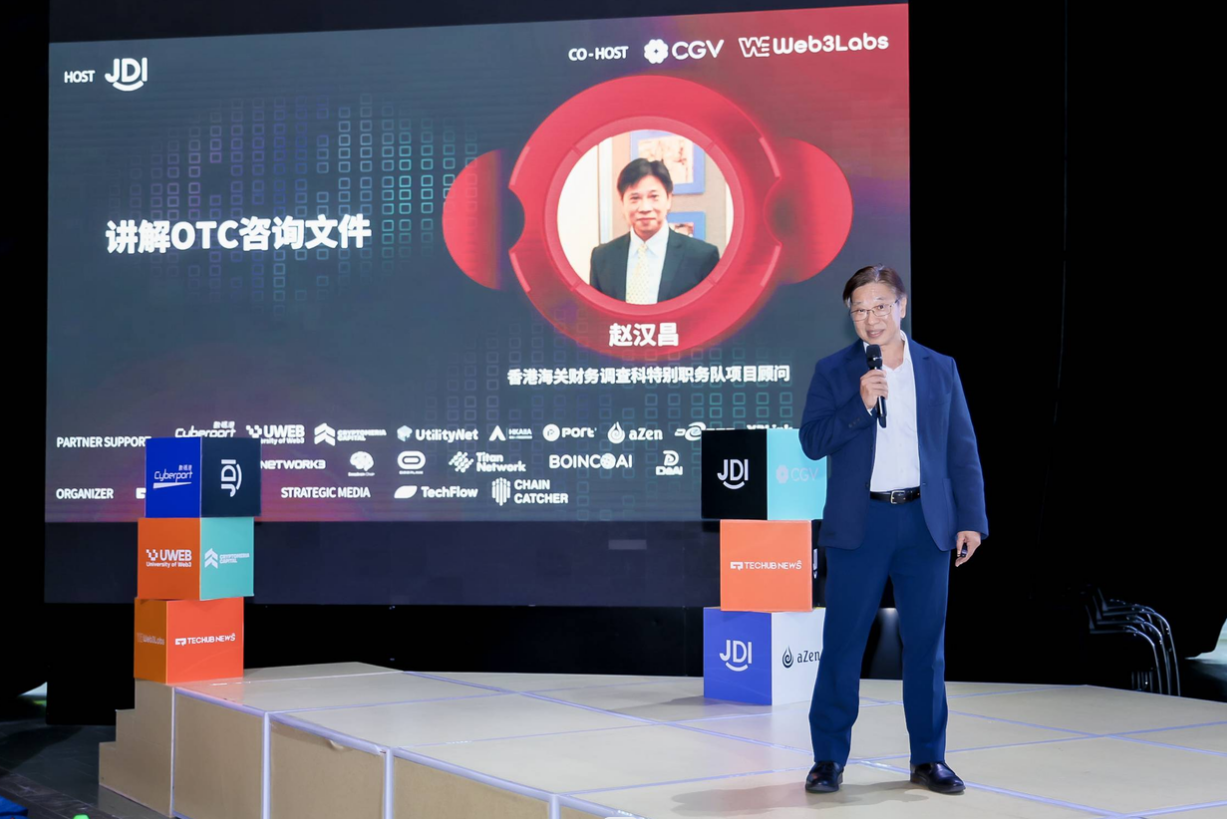
Next, Zhao Hanchang, a project consultant from the Hong Kong Customs Financial Investigation Division, explained the customs OTC policy. He stated that the customs will continue to introduce OTC business within the regulatory scope and welcome valuable opinions and suggestions from all parties. The introduction of this policy aims to provide a more flexible and convenient regulatory environment for the development of new technologies such as DePIN.
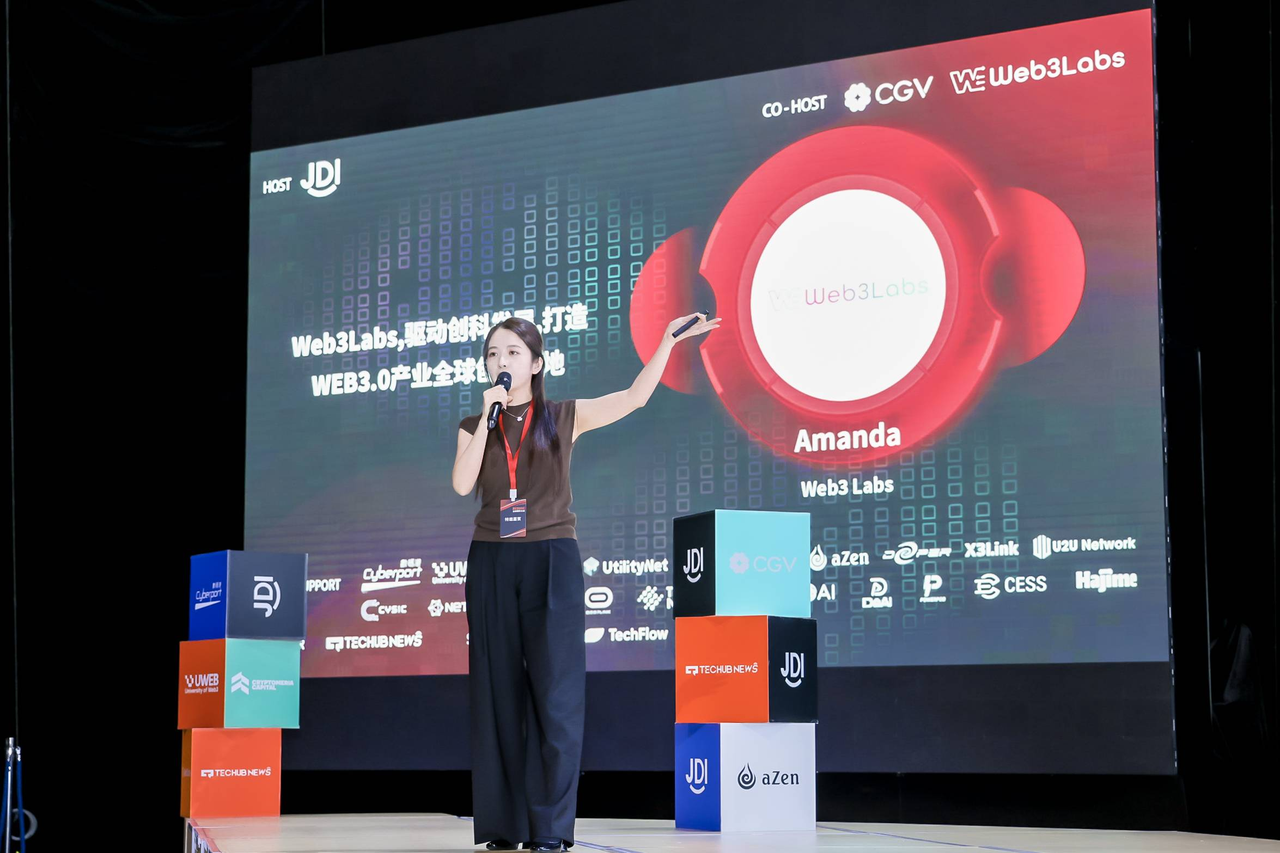
Amanda, Vice President of Web3 Labs, emphasized the mission of Web3 Labs in her speech, which is to help global Web3 enterprises land in Hong Kong and accelerate industry development through its service system. She believes that Hong Kong, as a financial center with an open legal environment and multiple advantages, is an ideal place for Web3 industries. At the same time, Amanda also pointed out the challenges faced by Web3 enterprises and stated that Web3Labs will actively respond to the policies of the Hong Kong SAR government, providing landing services and technical cooperation support for global Web3 enterprises.
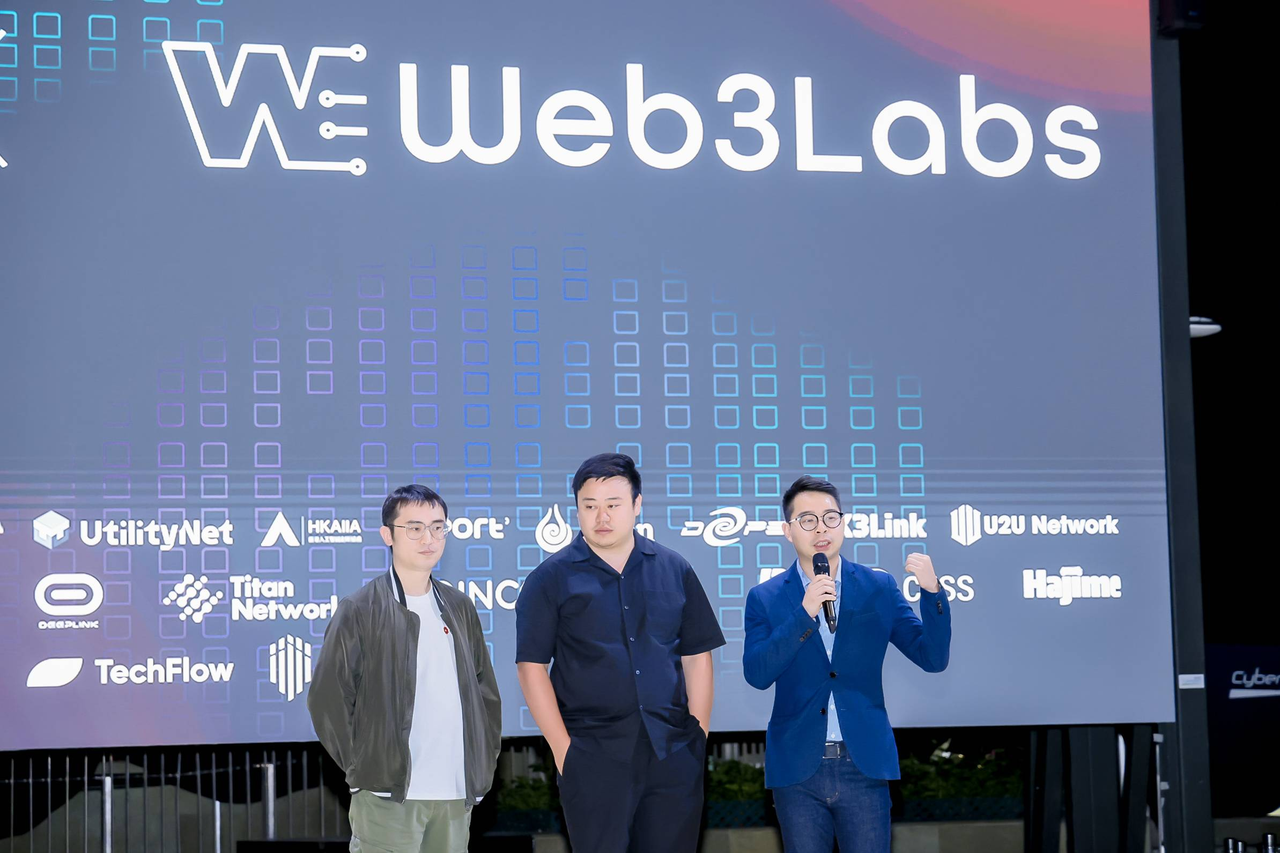
During the ceremony for the release of the DePIN Acceleration Plan by JDI Global and Web3 Labs, Mr. Wang Yiming, Chairman of JDI, Mr. Huang Junlang, representative of Web3 Labs, and Mr. Kevin from CGV took the stage together. Mr. Wang Yiming emphasized three important directions for the future: home space, mobile space, and human peripheral applications. He believed that many DePIN projects should be built around these specific spaces to create more attractive stories and attract more people to join the DePIN ecosystem. Mr. Kevin and Mr. Huang Junlang also expressed their agreement and look forward to the cooperation pushing the development of the Web3 field. This brief exchange demonstrated the shared expectations and confidence of all parties in the DePIN Acceleration Plan.
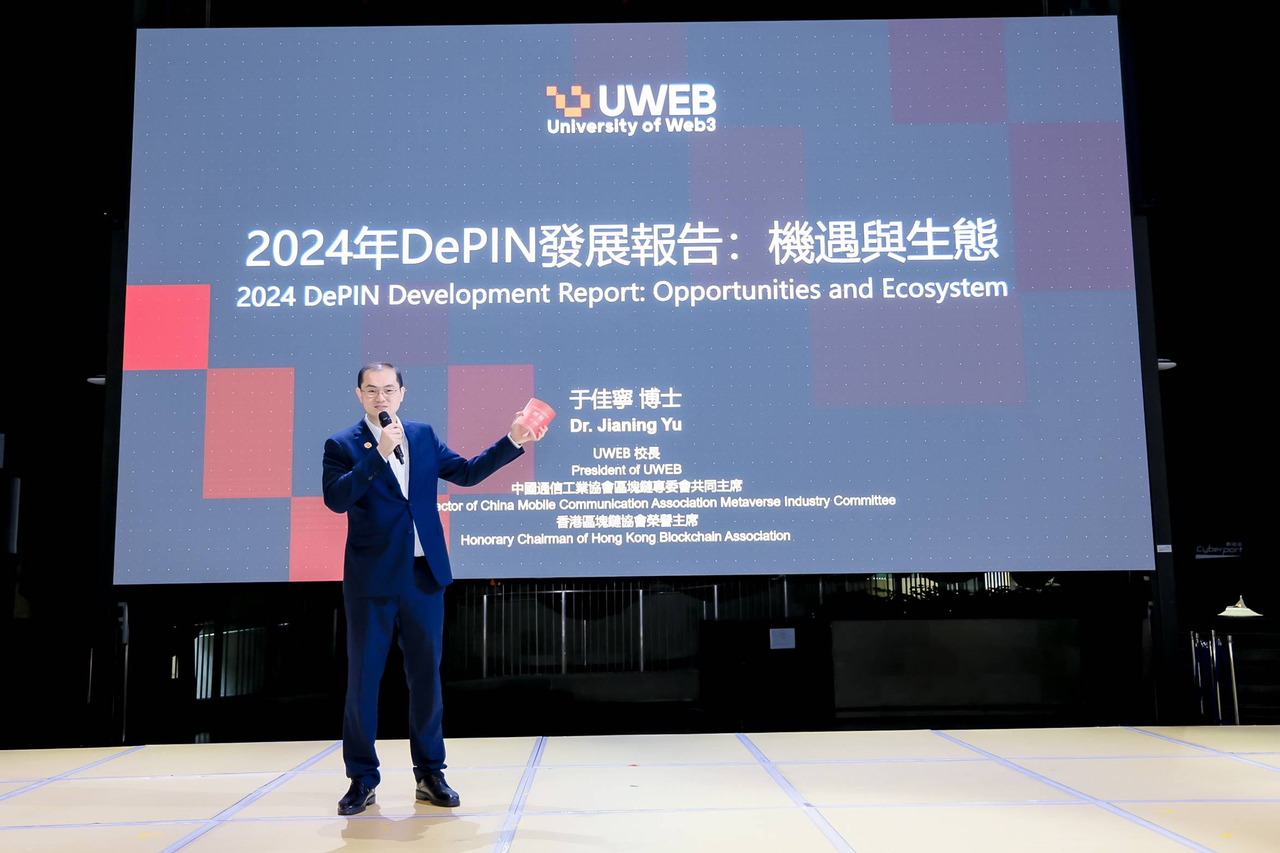
Subsequently, President Yu Jianing of UWeb released the DePIN report. In his report, he emphasized the significant transformative role of DePIN in future infrastructure construction and corrected the misconception that DePIN is only about hardware mining. He believed that as an important means of intellectual productivity and infrastructure construction, DePIN will integrate blockchain technology with industries to achieve the vision of empowering entities and promoting industrial development. President Yu also shared his love and expectations for DePIN, emphasizing its importance in future technological development and the rise of digital wealth.
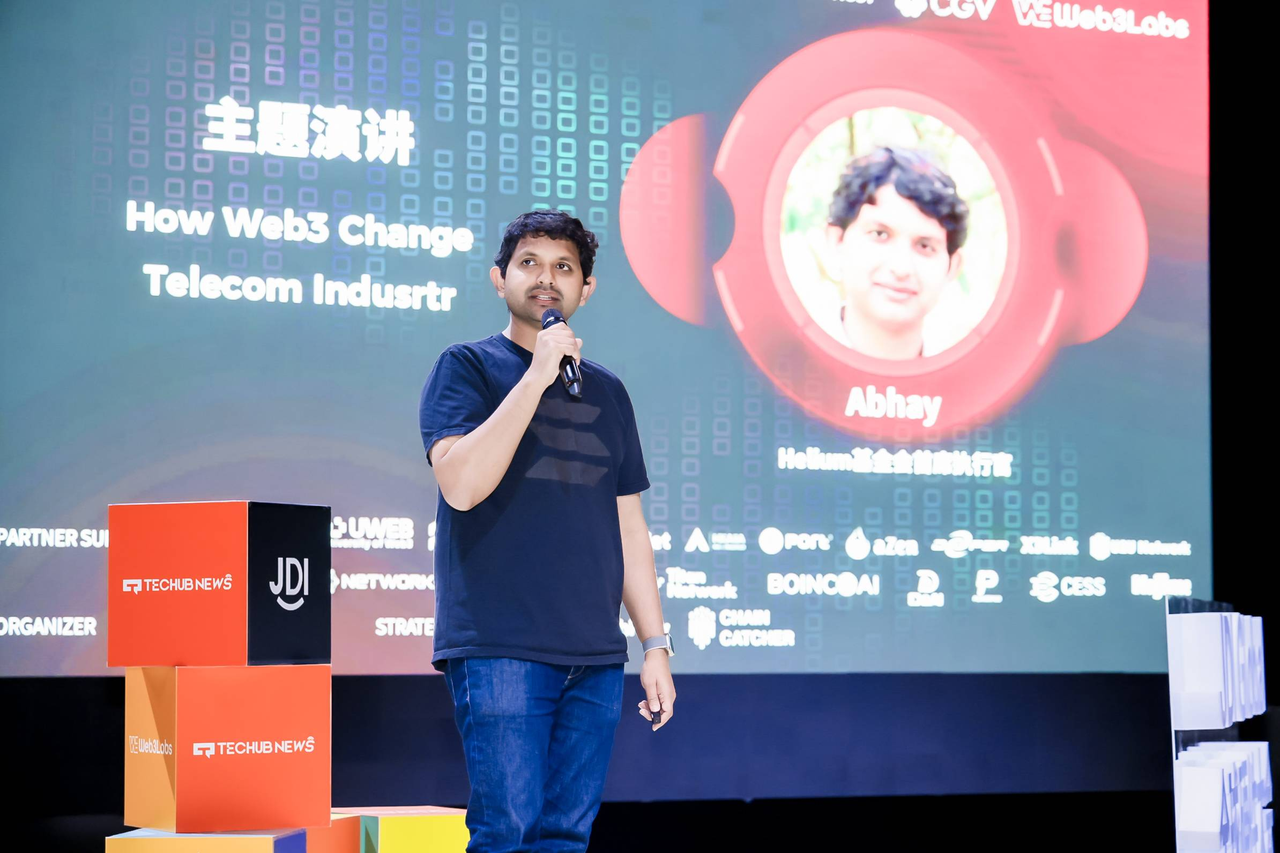
Abhay, CEO of the Helium Foundation, outlined the history of Helium and its role in the DePIN ecosystem. He pointed out that DePIN is a physical infrastructure network that uses token incentives to create a market. For wireless network suppliers, DePIN involves creating coverage areas, and token incentives guide this process. For demand-side users, tokens provide practical tools for using the network. Using city internet access as an example, abhay illustrated how DePIN solves traditional network licensing issues and provides convenience for mobile devices. In summary, his speech emphasized the key role of Helium and DePIN in building wireless network infrastructure and the importance of token incentives.
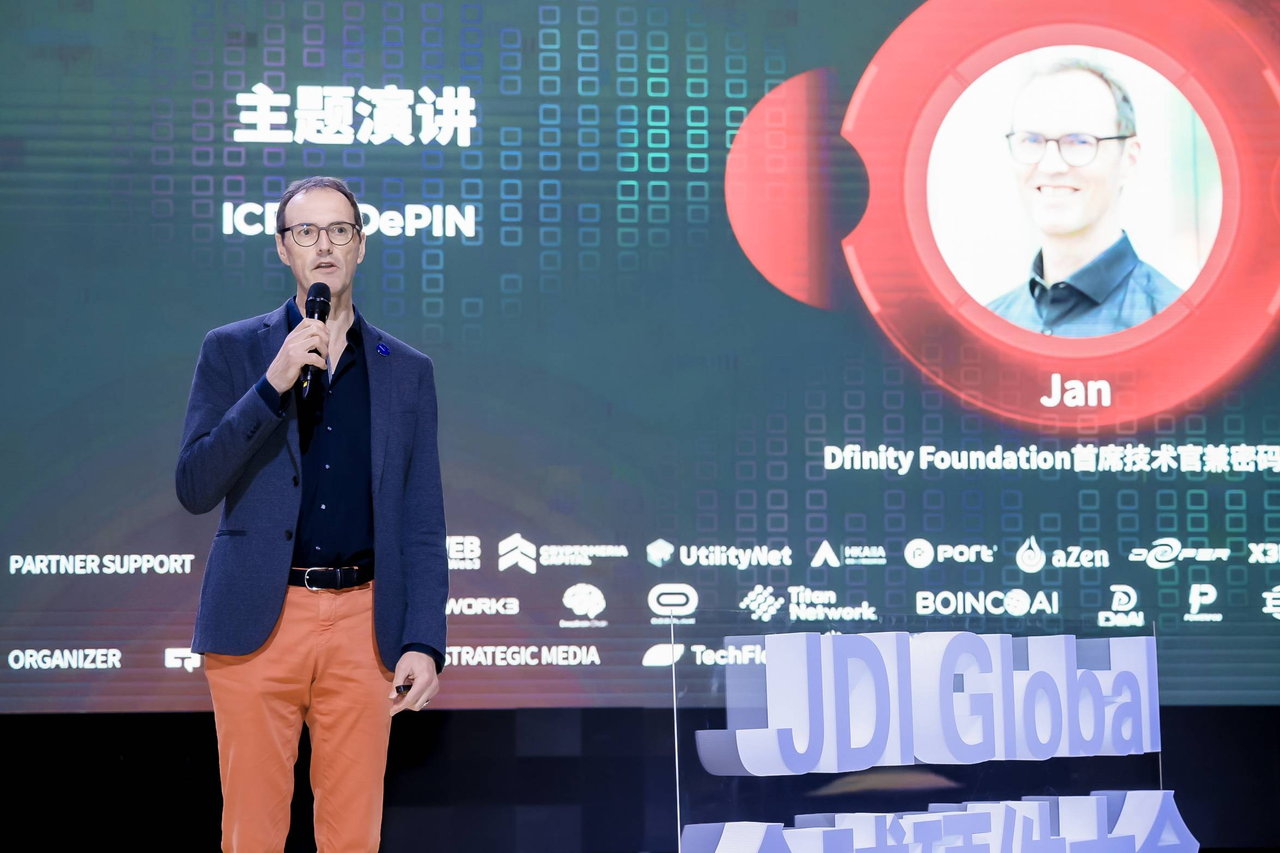
In his speech, Jan, Chief Technology Officer and Cryptographer of the Dfinity Foundation, emphasized the importance of decentralization, considering it a key factor in building secure, fault-tolerant systems. He mentioned that decentralized systems like the Bitcoin network have existed for many years without being hacked, which is the best proof of the security of decentralized systems.
Jan pointed out that the goal of decentralization is to build a secure, fault-tolerant system. He demonstrated the security of decentralized systems by citing the fact that the Bitcoin network has never been hacked over the years. He stated that ICP is a distributed network built from the bottom up, owned and governed by the community, and supports artificial intelligence. Unlike traditional blockchains, ICP is already capable of allowing users to access the blockchain without tokens, using only a mobile phone to address real user needs.
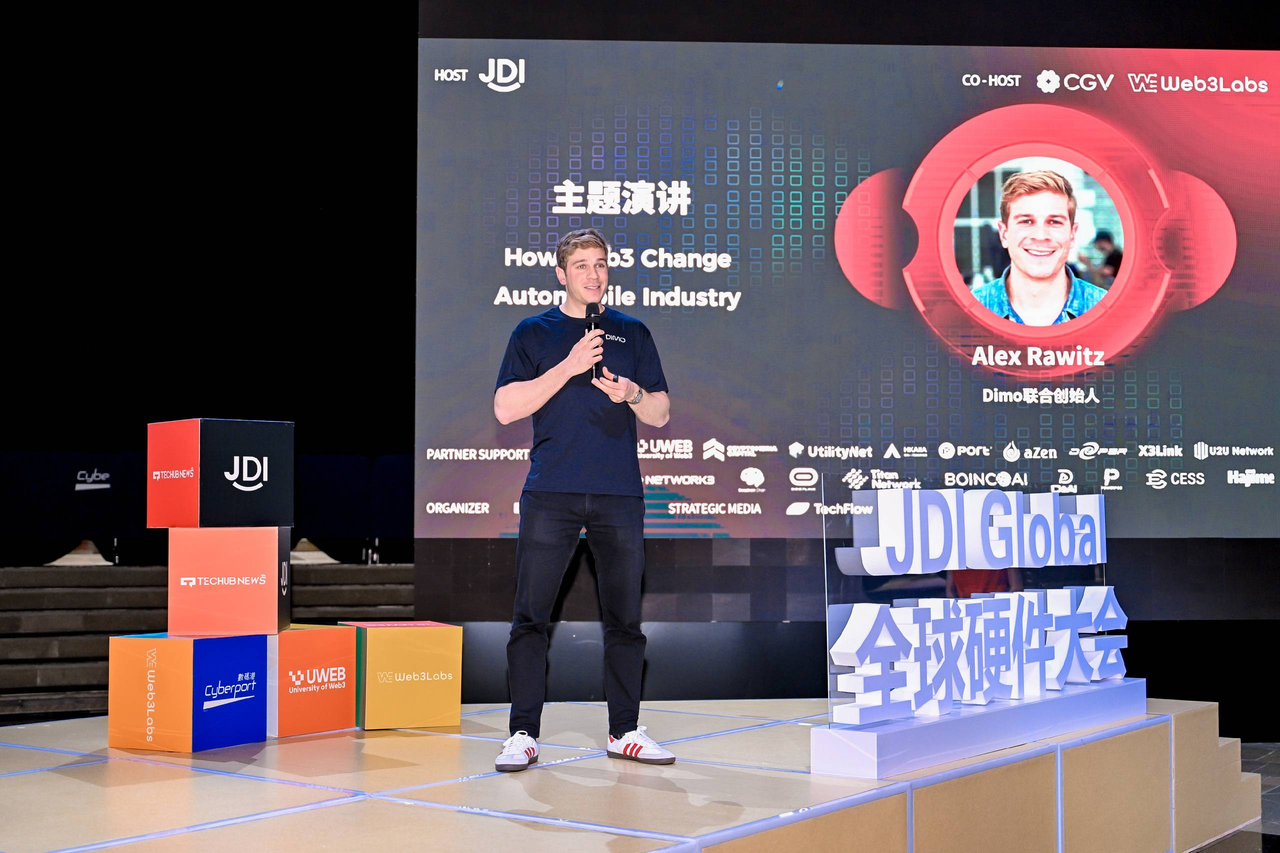
Alex, co-founder of Dimo, introduced Dimo's project in his speech: an open interconnected car network designed to help people fully utilize their vehicles and control their own data. He emphasized the importance of cars in the Internet of Things and blockchain fields, as cars are the most expensive IoT devices owned by most people, and the scale of the automotive industry far exceeds that of other devices combined. He also mentioned that the automotive industry currently faces data silo issues, and Dimo is committed to breaking down these barriers. In addition, Alex mentioned that transactions related to cars involve significant costs such as insurance, maintenance, and other factors, and data can improve the efficiency of these transactions. Dimo has begun to establish vehicle identity standards and plans to record and maintain this data throughout the vehicle's lifecycle to increase transparency and efficiency.

Kuleen, the head of DePIN Solana, emphasized the importance of distributed infrastructure in modern society, such as the internet, power grid, and data storage, all of which operate based on distributed networks. However, the construction of these networks is both expensive and complex, often leading to high centralization and unfairness.
He believes that DePIN is the key to solving these problems. The uniqueness of DePIN lies in its ability to effectively address the numerous challenges faced by distributed infrastructure. Through DePIN, we can build a more fair, transparent, and decentralized world.
Finally, Kuleen called on the DePIN developers present to build their projects on Solana, as Solana provides an ideal environment to support the development of DePIN. His speech not only deepened people's understanding of Solana and DePIN but also inspired enthusiasm for building a fairer and more decentralized society.
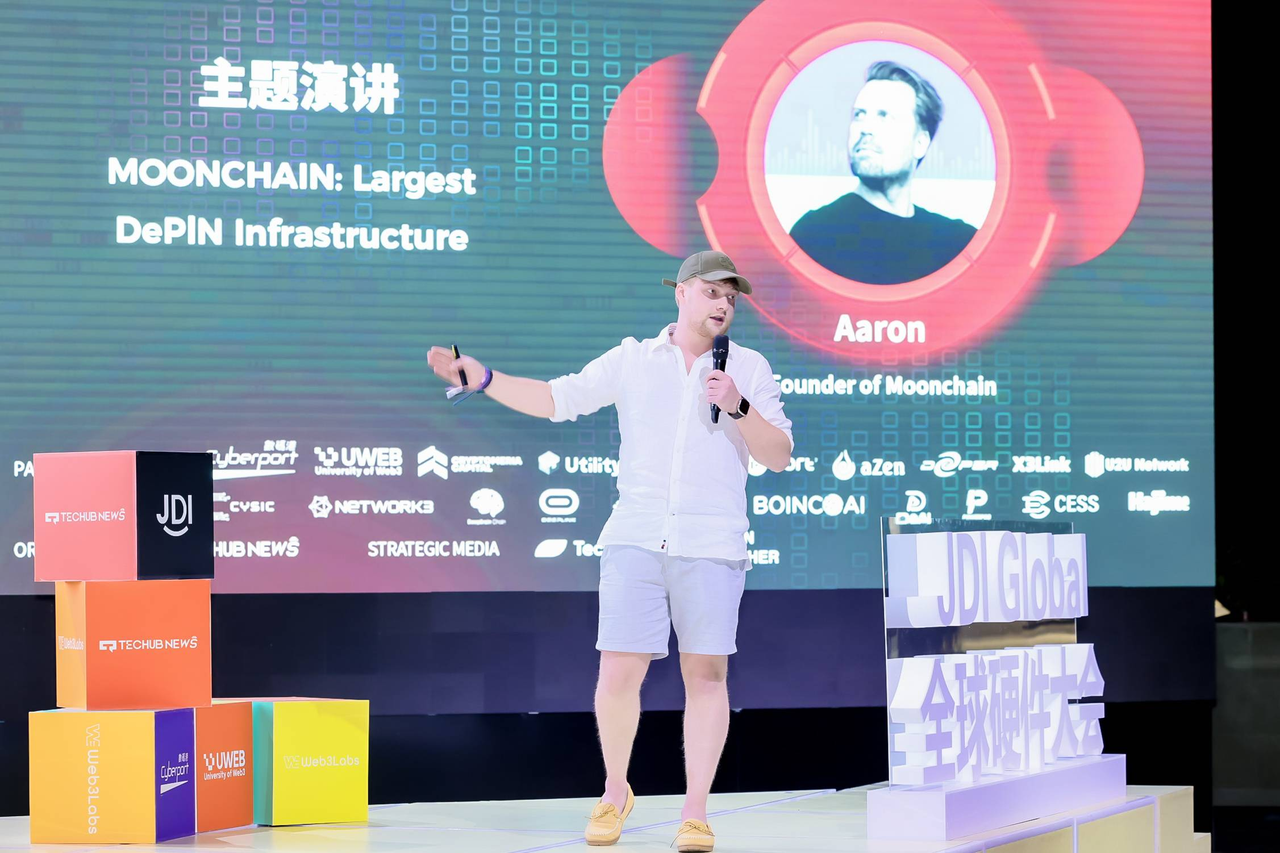
Aaron, the founder of Monnchain, introduced Monnchain as a holding company focused on cryptocurrency, which has been dedicated to ambitious projects since its establishment in 2018. He emphasized that the core focus of Monnchain is games, NFTs, and the open metaverse. Through community and DAO participation, Monnchain actively supports portfolio companies in high-conviction investments. Aaron stated that Monnchain is not just a chain but a complete ecosystem. He predicted that by 2024, we will witness the rise of DePIN. He listed some key advantages of Monnchain, including the successful deployment of over 45,000 global IoT gateways and the possession of a vast IoT network. Furthermore, Monnchain's robust blockchain allows IoT devices such as smartwatches and glasses to access, adding more possibilities to its ecosystem.
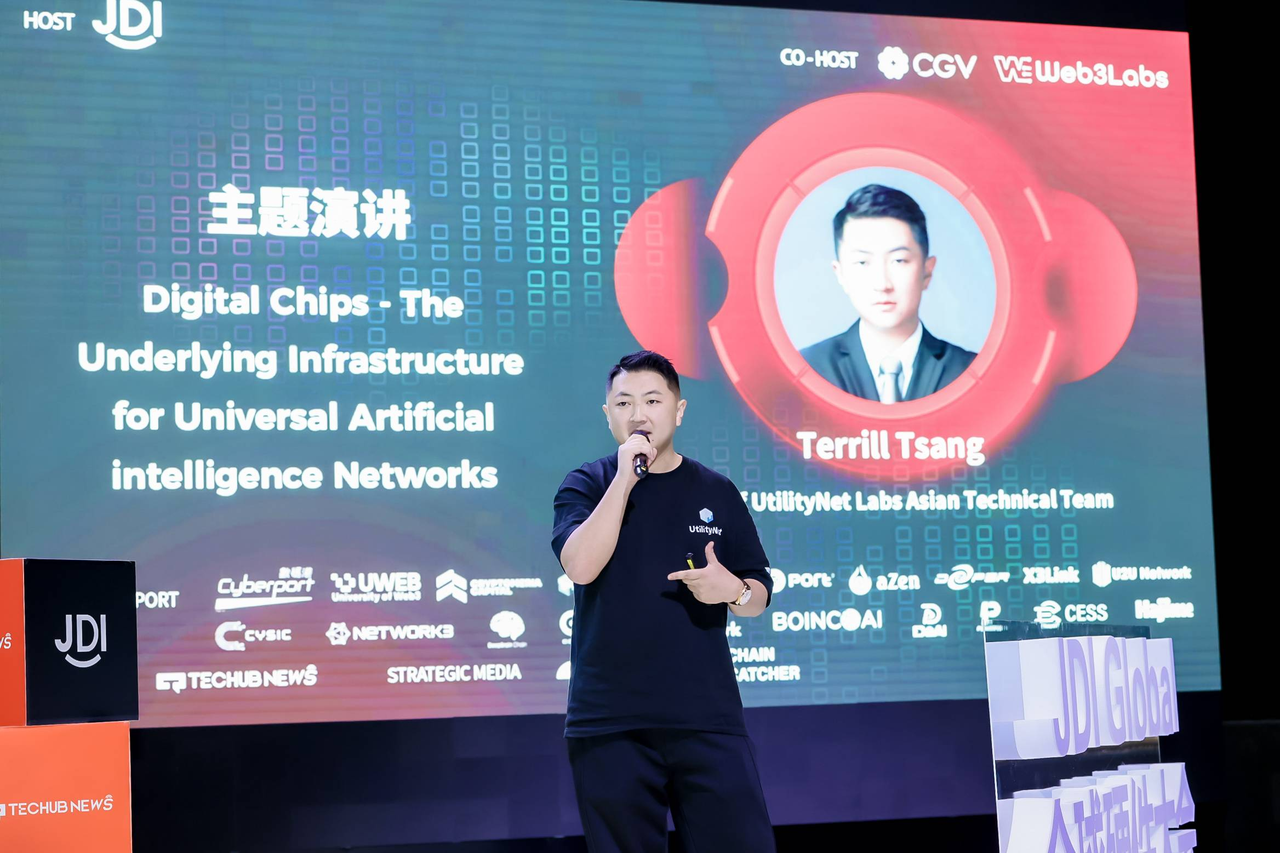
Tsang introduced Utility Net as a new Layer1 blockchain based on a decentralized digital chip network. Each physical chip has a unique corresponding RWA mapping wallet on the chain. Through this innovative hybrid encryption protocol, it can achieve incentives without wasting computing power, and the remaining computing power can be rented at a low price to users who truly need it. It is expected to drive a large amount of private capital to participate in the construction of actual AI computing infrastructure, which coincides with the development of new quality productivity in the AI+ and Hong Kong regions.
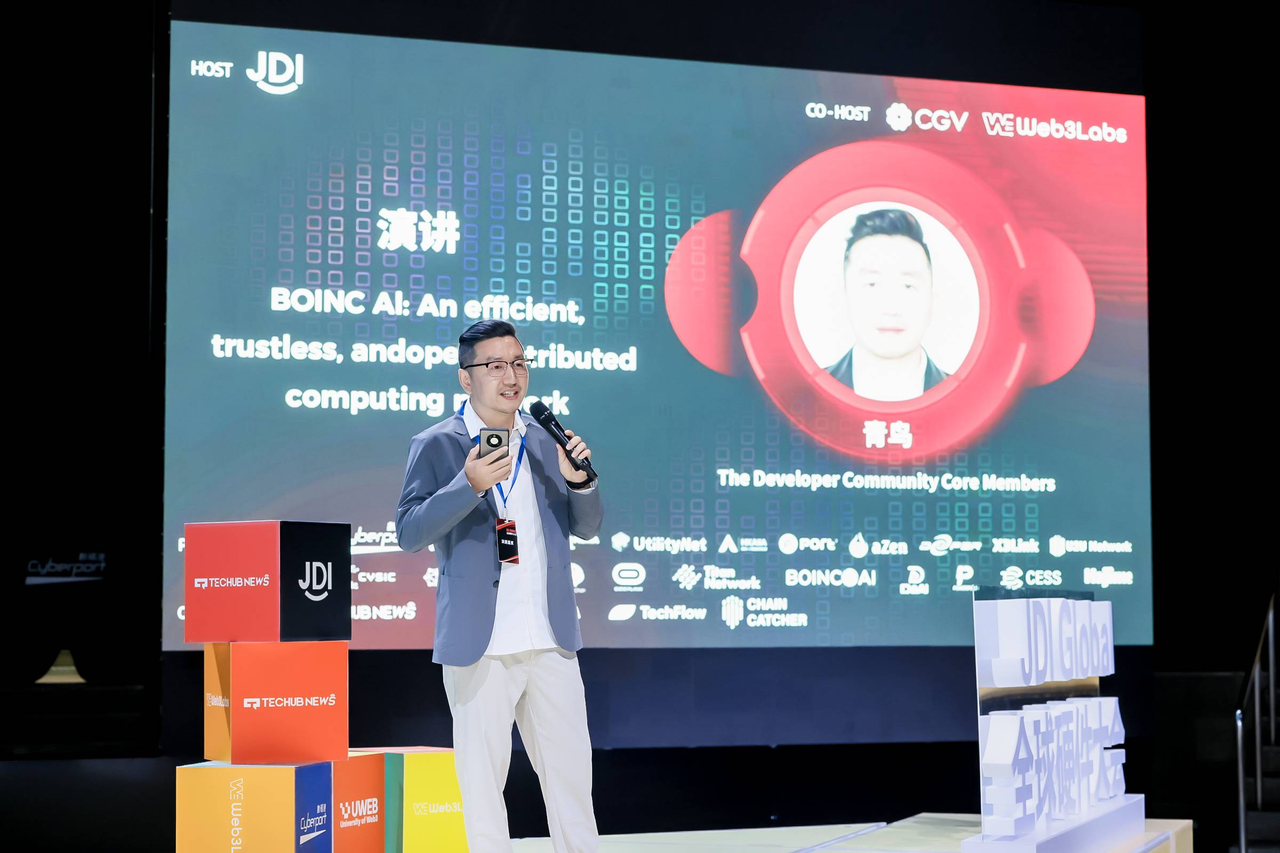
In the speech by Boinc developer Qingniao, he emphasized the importance of artificial intelligence in today's work and learning, pointing out that distributed computing power networks are the key to the future. He believed that existing artificial intelligence computing power suffers from monopolistic issues and needs an open, decentralized platform to solve them. He introduced how DPN (Distributed Computing Power Network) provides real-world data and redefines the relationship between computing power and humans. He mentioned that computing power is the engine of artificial intelligence, algorithms are the gearbox, and data is the source. To drive the commercialization of artificial intelligence, sufficient, open, and transparent computing power is needed. Finally, he introduced how Boinc AI uses the original PUVC computing power value consensus algorithm to achieve decentralization of computing power, algorithms, and data to promote the development of artificial intelligence.
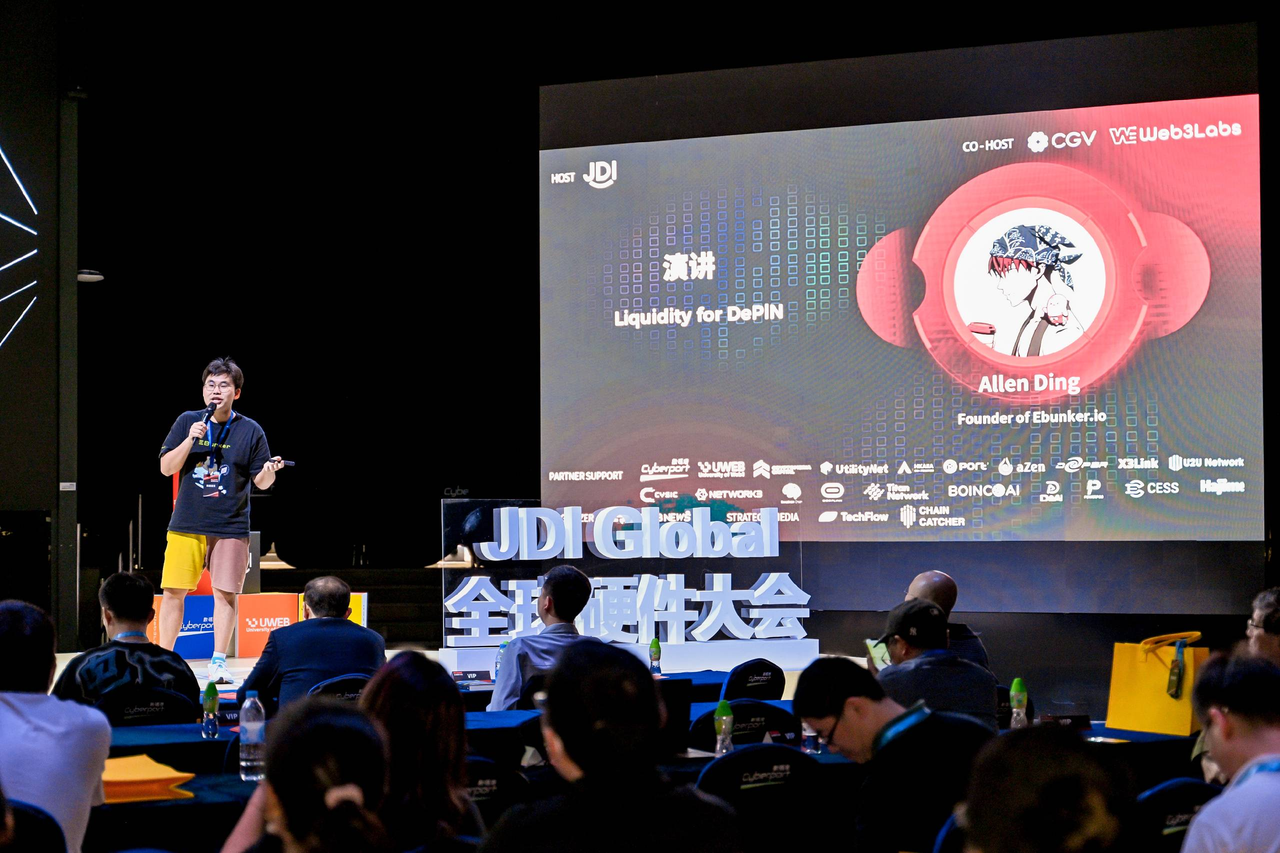
Allen Ding, founder of Ebunker.io, shared his rich experience in the Ethereum and DeFi fields in his speech and introduced the achievements of the company eBonker in blockchain infrastructure. He emphasized the decentralization of Ethereum network validation nodes and launched a new product, Ebunker, aimed at helping users achieve higher returns. In addition, Ding also launched the debunker platform to provide liquidity for low-hire, solving restrictions and issues in the low-hire process, allowing more people to participate in the crypto field. He believed that low-hire is the key to the popularization of blockchain technology, so he focuses on this direction. During his speech, he conducted on-site surveys and found that many people do not understand low-hire well, so the launch of debunker will provide them with better opportunities to participate. Finally, Ding thanked everyone for listening and expressed his continued efforts to promote the development of blockchain technology.
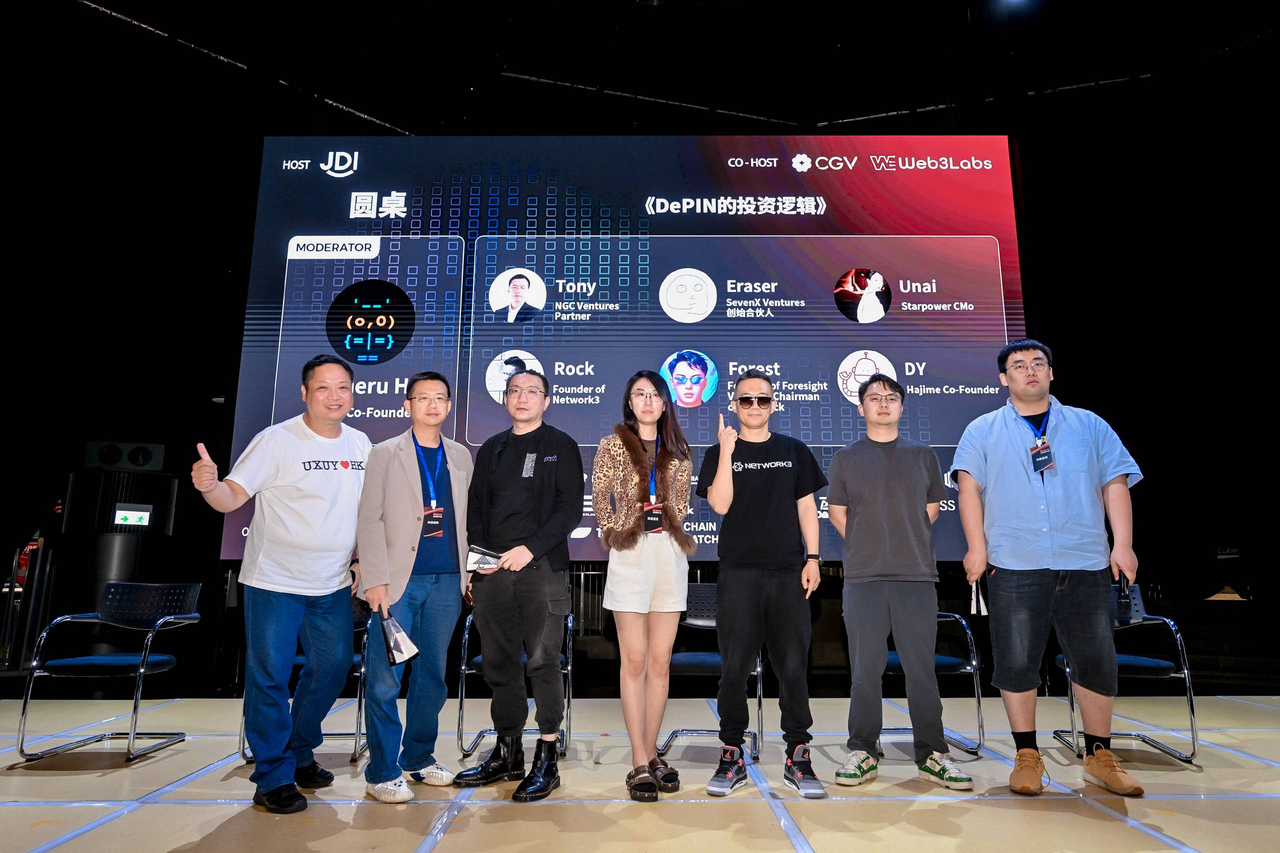
In today's roundtable forum "Investment Logic of DePIN," we invited guests from different backgrounds and fields, including investment institutions and project parties, to discuss the investment logic of the DePIN field. The guests introduced their institutions and projects, and shared their investment experience and views in the DePIN field. NGC Ventures partner Tony introduced their investments in DePIN projects and emphasized the importance of Web3 Global Fund in the DePIN field. Eraser, founding partner of SevenX Ventures, shared their investment experience and views in the DePIN field, stating that they are actively seeking potential DePIN projects. In addition, Unai, CMO of Starpower, introduced how they help DePIN projects with marketing and brand building. Rock, founder of Network3, stated, "DePIN projects are not built in a day, they need time to accumulate points, run on the test network for a period of time, iterate the project, and wait for the project to stabilize before going live on the formal network." Forest also stated that they not only focus on investments in the DePIN field but also provide comprehensive reporting and analysis for the industry through media platforms. The entire forum was lively, with active interaction among the guests, bringing an exciting roundtable forum to the audience.
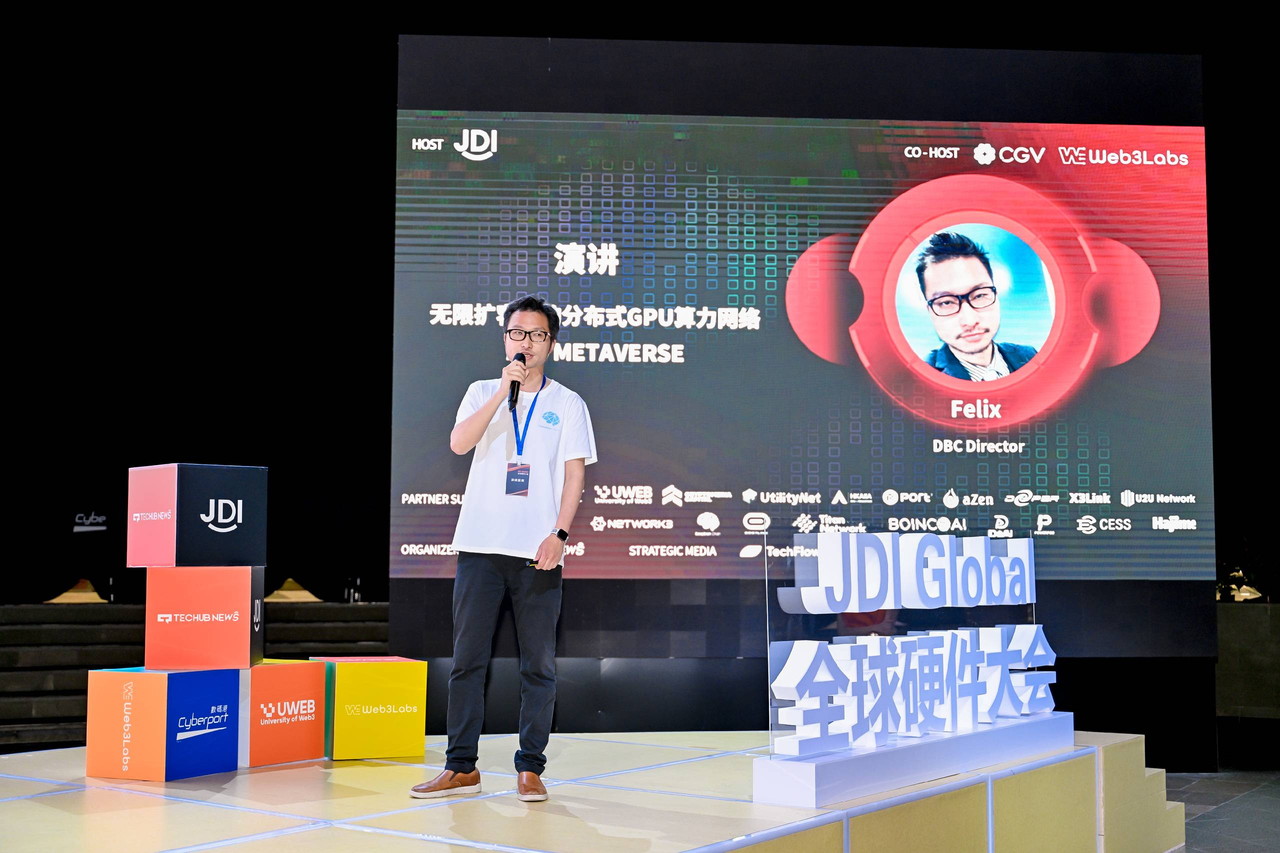
Felix DBC Speaker's speech emphasized the uniqueness and forward-looking nature of the Deep Brainchain project. He reviewed the loneliness and initial attempts to combine AI and blockchain at the start of the project, marveling at the flourishing development of the DePIN and AI blockchain fields many years later. He introduced the core of the DBC project—decentralized cloud computing power—and demonstrated the rapid development of its network-wide computing power and technology. At the same time, he also pointed out the differences from peer projects and emphasized the open source, global coverage, and cost-effectiveness advantages of DBC. He is optimistic about the future growth of AI computing power and stated that the DBC project provides an opportunity for retail investors to participate in the development of the AI ecosystem. Finally, he looked forward to the application prospects of AI training and reasoning, cloud gaming, cloud internet cafes, and mining, emphasizing the importance of decentralized computing power in the growth of AI hardware demand.
Ting Du Powerpod's speech emphasized the importance of energy in artificial intelligence and the global energy revolution. He demonstrated the importance of energy in daily life through personal experiences, especially the power shortage he faced during the pandemic, which made him deeply aware of the importance of energy. He believes that despite the current focus on artificial intelligence, the development of artificial intelligence cannot be separated from the support of energy, and in the future, energy will become an equally important basic element and universal currency in the DePIN era. He also pointed out the issue of electric vehicle charging, specifically the lack of charging facilities limiting the widespread adoption of electric vehicles, which is one of the problems that needs to be addressed in the global energy revolution. Therefore, he called on everyone to pay attention to energy issues and collectively promote the development of the global energy revolution.
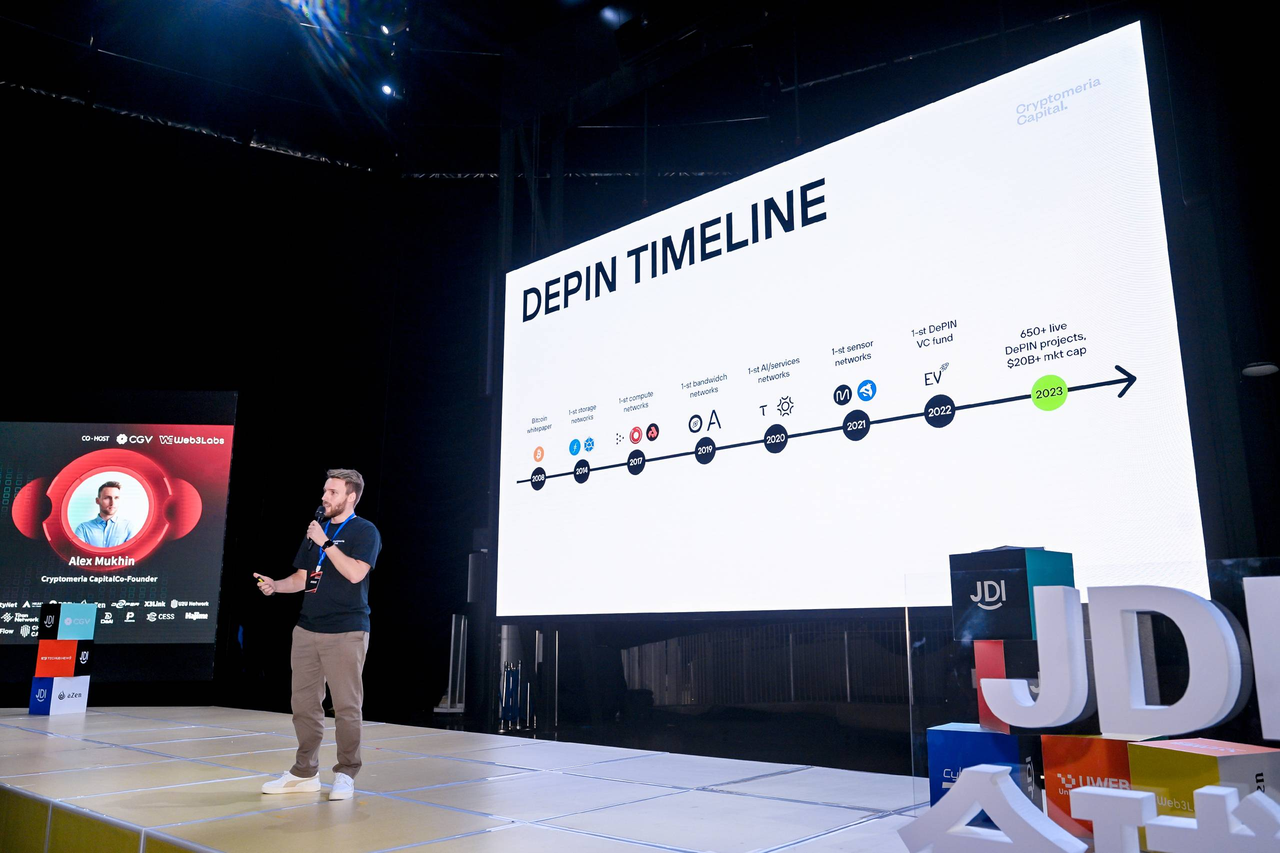
Alex Mukhin, co-founder of Cryptomeria Capital, delivered a heartfelt speech. He first introduced his background as the co-founder of multiple companies, with business involvement in investment funds, media, and entertainment projects, among other areas. Their investment fund, Cryptomeria Capital, is a global investment fund supported by Accent Partners, the largest traditional asset management company in Europe. In addition, they operate a global tech media, Ampost, and a blockchain-based entertainment project, Satoshi Universe.
Alex emphasized the significant contributions of their company in the industry, providing a large number of institutional-level reports covering multiple aspects. He then turned to a special report they are about to release—State of the Pin. This 180-page report contains in-depth analysis, insightful comparisons, and a wealth of information, making it an important report in the field.
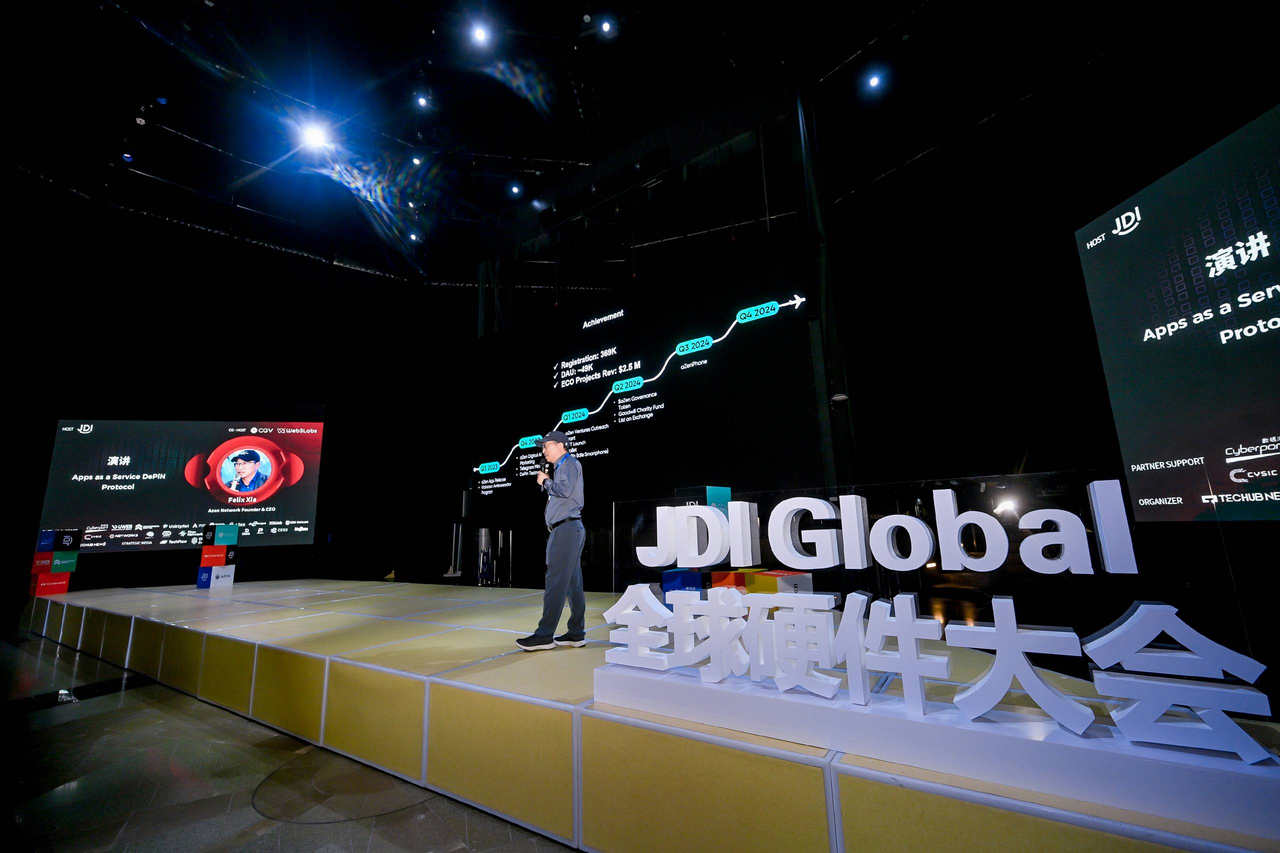
In Felix Xia's speech, Azen Network presented a decentralized, flexible, and user-friendly platform vision. The platform aims to support the invocation of resources such as CDN, GPU, and CPU, providing developers with convenient and efficient tools. By sharing his research background and team achievements, he showcased their professional capabilities in distributed computing and low-frequency project development. In particular, he mentioned the innovative approach of simplifying complex problems into simple app development and resource scheduling through NFT and smart contracts, leaving a deep impression.
Furthermore, Felix emphasized the concept of creating wealth for the rich and providing opportunities for the poor, proposing the idea of meaningful "mining" using idle mobile phones. This idea not only has social significance but also demonstrates the inclusive value of technology. Additionally, his exploration of customer acquisition through social media and building project ecosystems provided us with new perspectives and considerations.
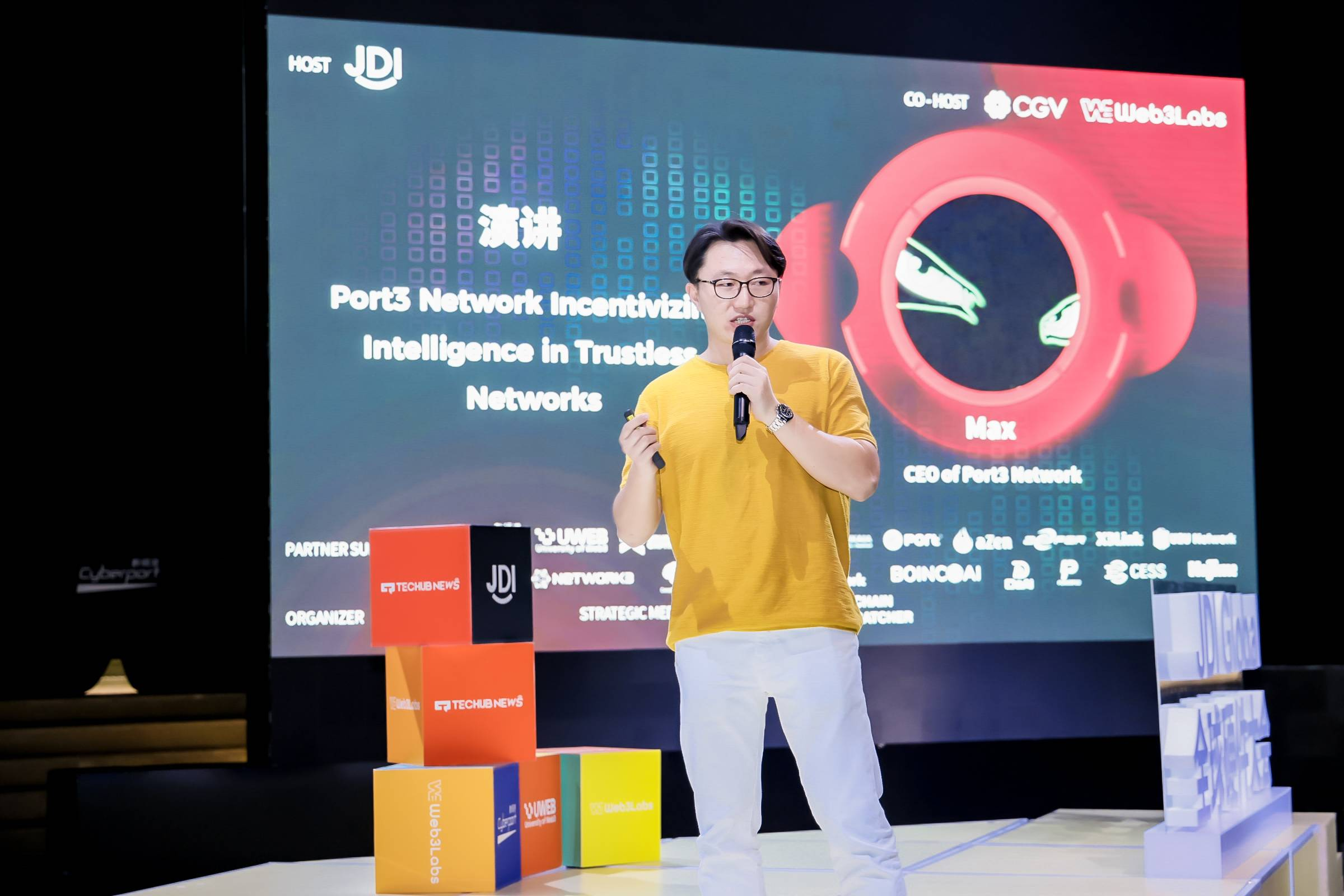
Max, CEO of Port3 Network, showcased the deep strength of Port3 Network in the AI services field in his speech. He emphasized the team's rapid construction of infrastructure, middleware, and applications over the past two years. He also thanked the support of partners and revealed that the company is closely collaborating with Solana and Okis, attempting to build its own chain. During the speech, Max also mentioned the company's user and partner numbers, highlighting the company's achievements and influence.
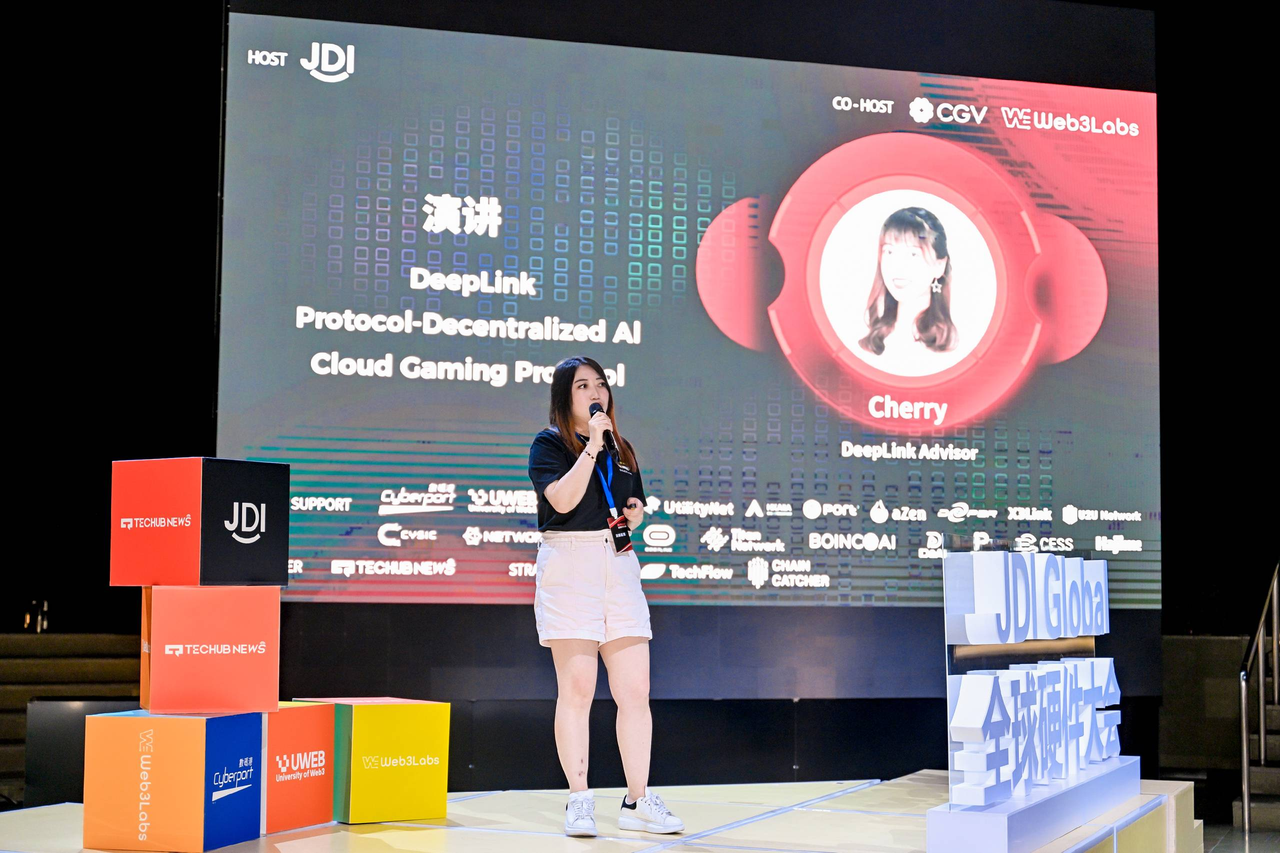
Cherry, the strategic manager of DeepLink, presented a clear and concise introduction to DeepLink as a decentralized AI cloud gaming platform's technical features and market prospects. She emphasized the rapid growth of the cloud gaming market and how DeepLink solves two major technical challenges in the cloud gaming industry—low-latency high-resolution gaming experience and hardware investment costs—through the combination of AI and blockchain technology. She also introduced how DeepLink incentivizes miners to provide stable services through blockchain technology, reducing operating costs, and allowing users to participate in project growth dividends. Finally, she showcased the application of DeepLink in multiple areas such as remote control tools, cloud gaming platforms, cloud internet cafes, and cloud XR, and emphasized that "the valuation of the cloud gaming market in 2024 will exceed 6.5 billion, which is a rapidly developing industry. Based on the DePIN project DeepLink in the cloud gaming field, it can provide a cloud gaming solution to help some commercial games or refining projects increase player retention and increase the number of players."
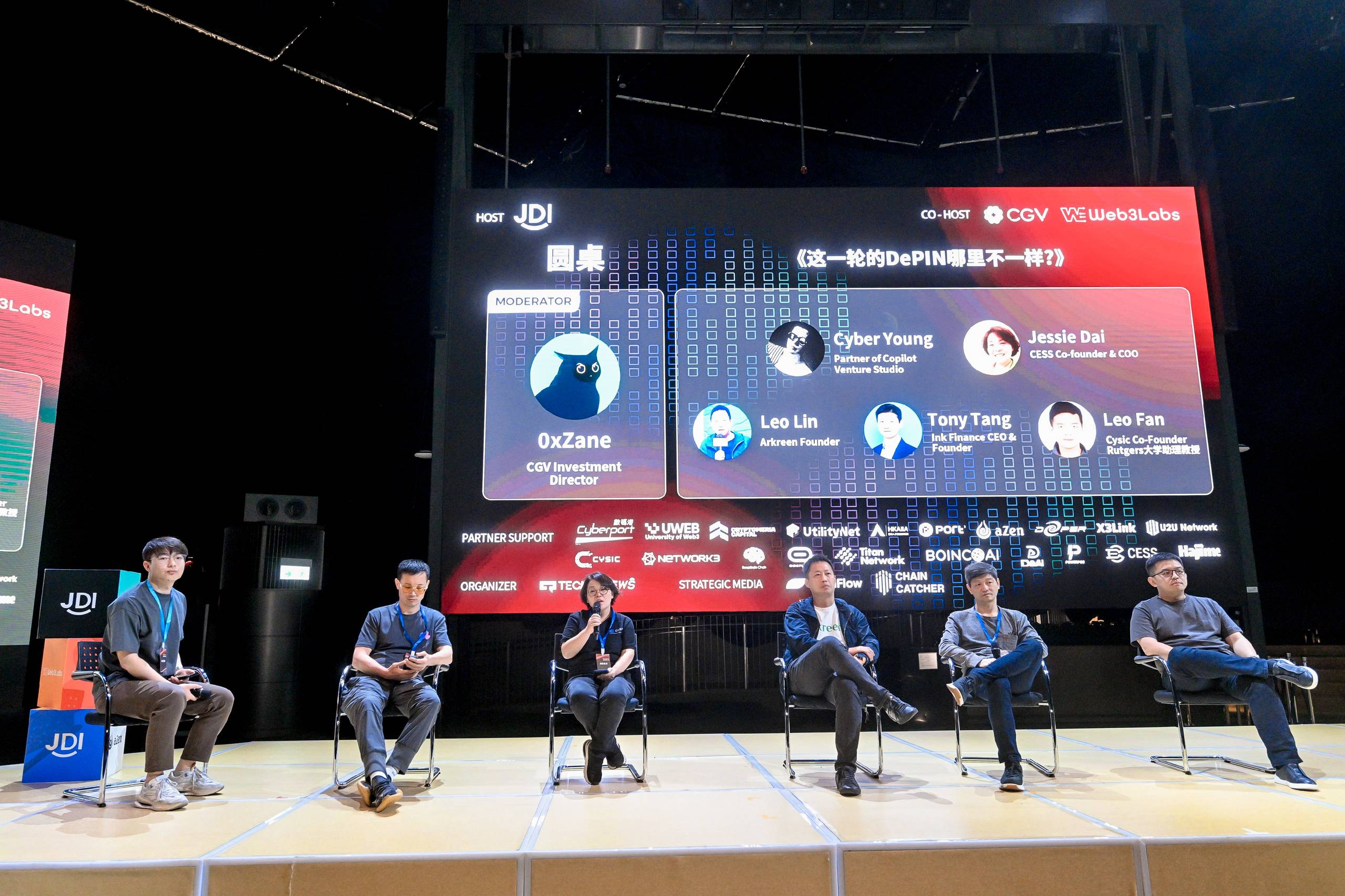
The theme of the roundtable forum was "What Makes This Round of DePIN Different?" and it invited guests from different fields, including investment institutions, startups, and technical experts. The forum was hosted by 0xZane, Director of CGV Investments.
The focus of the forum was to discuss the current hotspots of DePIN projects and the differences from early projects. The guests generally believed that although the DePIN concept is similar to early projects, the current market environment and technological development have provided new opportunities. They emphasized the important role of blockchain technology in the digital world, especially in its combination with AI, hardware, and other fields, providing new growth points for DePIN.
The guests also pointed out that the key to the success of current DePIN projects lies in whether they can become new traffic entry points and achieve widespread application. They also discussed the potential application scenarios of DePIN in Web3, AI, hardware, and other fields, as well as the challenges they face, such as technological compatibility and market acceptance.
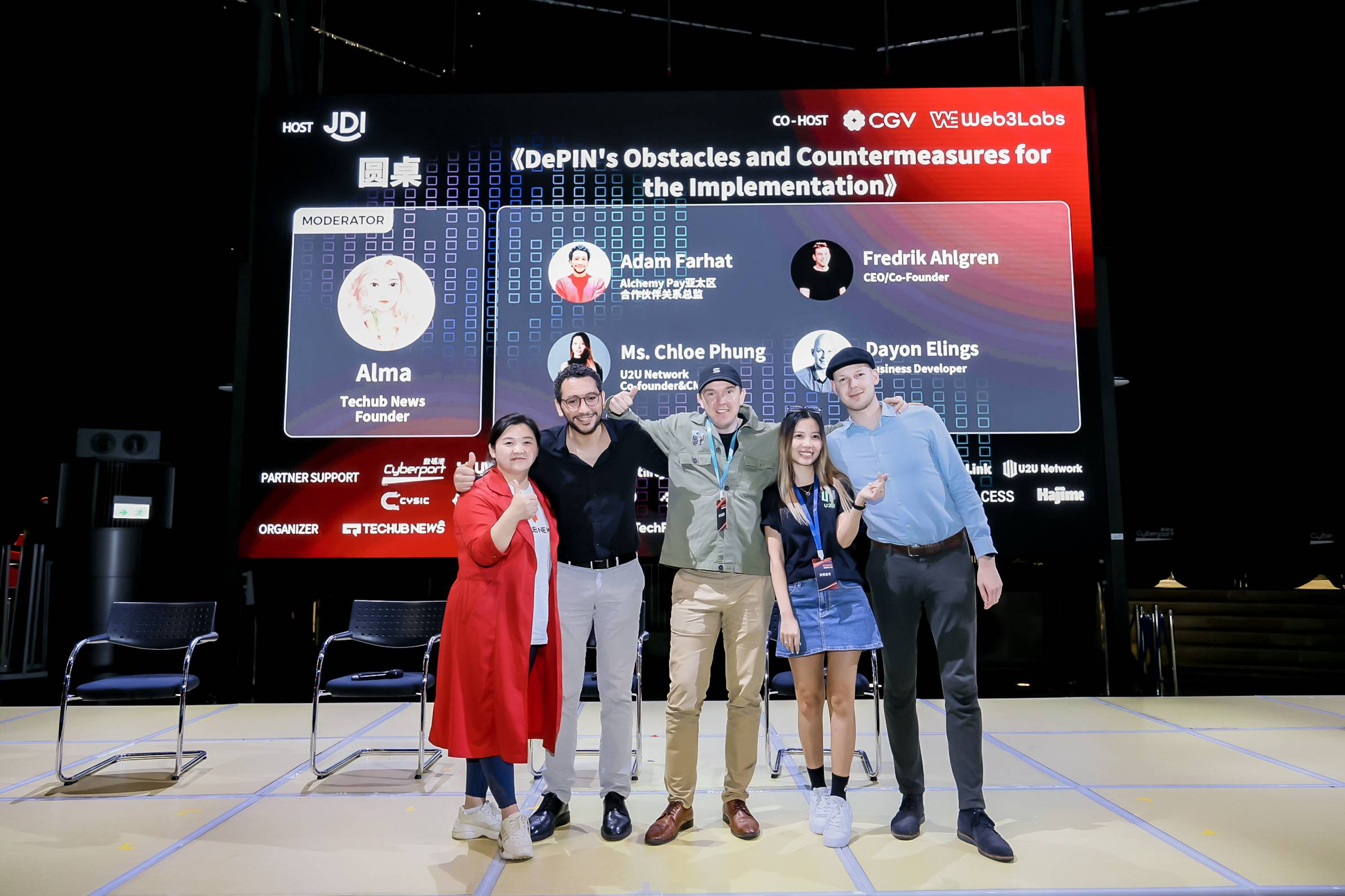
This roundtable brought together experts from the payment, renewable energy, internet, and mobile travel fields to discuss the challenges and opportunities of DePIN technology. Hosted by Alma, the guests delved into the application prospects and obstacles of DePIN technology in various fields.
Adam Farhat emphasized the impact of regulatory restrictions on the widespread application of DePIN technology, suggesting the need to strengthen communication and cooperation with regulatory agencies to promote industry compliance. Fredrik Ahlgren saw the potential of DePIN in the field of renewable energy, believing that technological innovation and user education are key to driving its application.
Chloe Phung, from the perspective of internet technology, believed that DePIN technology can bring better user experience and business innovation to the internet field, but it needs to adapt to rapidly changing market demands and technological trends. Dayon Elings looked forward to the application prospects of DePIN in the field of mobile travel, pointing out the challenges of technological difficulty and market acceptance.
Overall, the 2024 DePIN Global Hardware Conference was a convergence of technology and innovation. It not only brought together the elites and leaders of the global hardware industry but also showcased the enormous potential of new technologies such as DePIN in driving industry development and changing lifestyles. With the continuous development and implementation of these new technologies, we have reason to believe that future technology will be more convenient, intelligent, and better. We look forward to reuniting at the next DePIN Global Hardware Conference to explore the forefront of technology and open up infinite possibilities for the future!
免责声明:本文章仅代表作者个人观点,不代表本平台的立场和观点。本文章仅供信息分享,不构成对任何人的任何投资建议。用户与作者之间的任何争议,与本平台无关。如网页中刊载的文章或图片涉及侵权,请提供相关的权利证明和身份证明发送邮件到support@aicoin.com,本平台相关工作人员将会进行核查。




